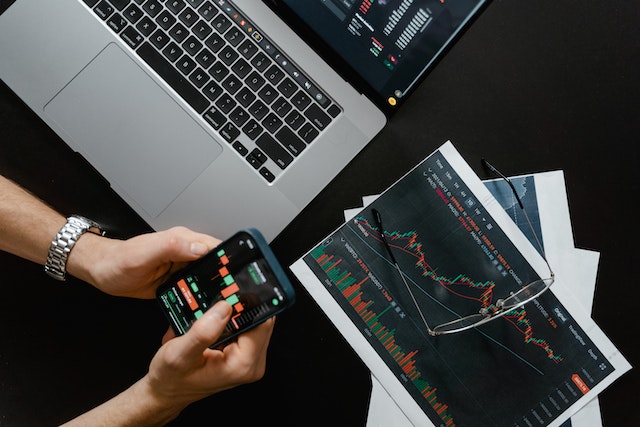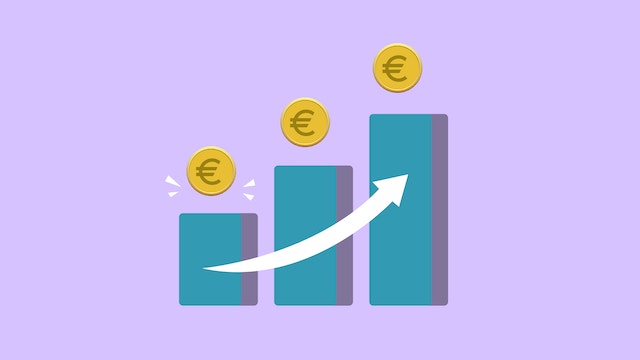Trading consists of various components and processes which every professional financial trader needs to carry out.
The more effectively these components are incorporated into your trading, the more successful your overall trading journey will be.
Trading with leverage is one such component, which can be highly beneficial when implemented with a thorough understanding.
However, leverage trading is also a complex process, which can be detrimental to your trades and cause potential losses, with misinformed use.
In this article, we will take you through what leverage trading is, as well as how it can be used efficiently to bring a range of benefits to your trading experience.
What is leverage trading?
 Leverage trading is a process that involves opening a position on a particular asset, with an initial deposit that is significantly less than the asset’s total price value.
Leverage trading is a process that involves opening a position on a particular asset, with an initial deposit that is significantly less than the asset’s total price value.
Leveraged trading is most commonly available when trading contracts for difference (CFDs), where instead of owning an underlying asset, you speculate on the asset’s price movement.
Using this trading style, leverage allows you to open a position with less initial capital – known as a margin – according to the specific leverage ratio.
For instance, if you wanted to open a position on an asset with a leverage ratio of 1:30, you could open a position worth £30,000 for a margin of only £1,000 and gain much greater exposure to the market.
Your returns will then be calculated using the leveraged value, which in this case would be £30,000, meaning your profits could potentially be very large.
However, it’s pivotal to know that leverage applies both ways, meaning should you incur any losses from trade, these losses would also be calculated against the leveraged value, not your initial deposit – meaning potentially larger losses.
What are the benefits of leverage trading?
Once you understand and incorporate leverage trading responsibly and effectively, it can bring several benefits to your trading experience:
1. Access to more trade opportunities
 Leveraged trading allows you access to a wider range of opportunities and greater exposure to the market, due to the smaller amount of capital needed for investments.
Leveraged trading allows you access to a wider range of opportunities and greater exposure to the market, due to the smaller amount of capital needed for investments.
Professional traders may be able to spot trends or opportunities, but with traditional trading, the large capital needed to own the underlying assets may be too high an investment.
With leverage trading, however, you can have the opportunity to profit from these assets without needing a large deposit.
This will allow you to execute trades on a much wider range of assets – including those of higher value – and expand your portfolio to more potential investments.
2. Higher chance of increased profit
 Leverage trading, when used effectively, can greatly increase your profits from every successful trade.
Leverage trading, when used effectively, can greatly increase your profits from every successful trade.
Due to the process of margin and leverage, your initial deposit can produce profitable returns which are measured against the much higher leverage value, as opposed to your deposit.
Should you execute a successful leveraged trade, your return will be significantly higher compared to your initial margin – potentially more than it would be with traditional trading – meaning largely increased profits for each trade.
3. Take advantage of all market performance
 Trading with leverage, especially when using CFDs, allows you to potentially profit from both rising and falling markets.
Trading with leverage, especially when using CFDs, allows you to potentially profit from both rising and falling markets.
With CFD leveraged trading, you can open a short (sell) position on an underlying asset, which can result in a profit from the asset’s falling value.
This means that you can not only profit solely from rising markets but falling markets can now also work in your favor, giving you the opportunity for profit regardless of the market’s performance.
Final Thoughts
Leverage trading can be a complicated process, but when fully understood, one that brings a range of benefits to your trading journey that increases your chances of profit and higher returns.
Author Profile

- Blogger by Passion | Contributor to many Business Blogs in the United Kingdom | Fascinated to Write Blogs in Business & Startup Niches
Latest entries
 BusinessApril 11, 2025How Hiring a Student Could Be the Best Move Your Business Makes
BusinessApril 11, 2025How Hiring a Student Could Be the Best Move Your Business Makes Living in LondonApril 9, 20255 Key Considerations for Long-Term Urban Rentals
Living in LondonApril 9, 20255 Key Considerations for Long-Term Urban Rentals EntertainmentApril 3, 20257 Slot Games that are Popular with Londoners
EntertainmentApril 3, 20257 Slot Games that are Popular with Londoners EventsMarch 25, 2025EGR Awards 2025: London’s Comeback After Losing ICE
EventsMarch 25, 2025EGR Awards 2025: London’s Comeback After Losing ICE




